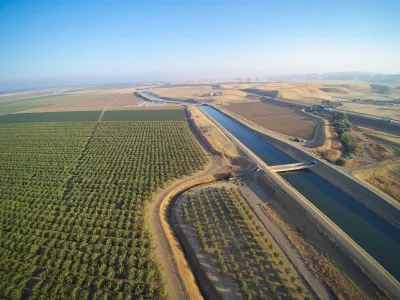California’s Project Nexus has begun generating electricity from solar panels installed over irrigation canals, with researchers and state agencies exploring statewide expansion to conserve water and boost clean energy production.

Project Nexus, California’s first solar-over-canal initiative, has begun producing electricity through solar panels installed above irrigation canals managed by the Turlock Irrigation District (TID). The pilot project, a collaboration between TID, Solar AquaGrid, UC Merced, and the California Department of Water Resources, is part of a broader effort to scale clean energy while conserving water and utilizing existing infrastructure. A UC Merced study published in Nature Sustainability found that placing solar panels over the state’s 4,000 miles of canals could generate enough electricity for 2 million homes, conserve a similar amount of water, and reduce the need for land-consuming solar farms.
As the pilot progresses with both narrow- and wide-span systems under development, the California Solar Canal Initiative (CSCI) is working to expand this concept statewide. Led by USC Dornsife’s Public Exchange and Solar AquaGrid, the CSCI is evaluating optimal canal locations, engaging potential host communities, and collaborating with a diverse team of researchers from several universities. The initiative is supported by a broad advisory council and state agencies, aiming to make the findings actionable and accelerate implementation across California.
The potential benefits of solar canal systems extend beyond power generation and water savings. By shading canals, these systems could reduce weed and algae growth, lower maintenance costs, and improve panel efficiency due to the cooling effect of water. The approach also avoids converting undeveloped land, preserving up to 50,000 acres of habitat. Amid California’s climate extremes—swinging between floods and drought—officials stress the importance of integrated solutions that support both water and energy resilience while contributing to climate goals.
FULL STORY: Consortium looks to expand canal solar projects statewide

Maui's Vacation Rental Debate Turns Ugly
Verbal attacks, misinformation campaigns and fistfights plague a high-stakes debate to convert thousands of vacation rentals into long-term housing.

Planetizen Federal Action Tracker
A weekly monitor of how Trump’s orders and actions are impacting planners and planning in America.

In Urban Planning, AI Prompting Could be the New Design Thinking
Creativity has long been key to great urban design. What if we see AI as our new creative partner?

Pedestrian Deaths Drop, Remain Twice as High as in 2009
Fatalities declined by 4 percent in 2024, but the U.S. is still nowhere close to ‘Vision Zero.’

King County Supportive Housing Program Offers Hope for Unhoused Residents
The county is taking a ‘Housing First’ approach that prioritizes getting people into housing, then offering wraparound supportive services.

Researchers Use AI to Get Clearer Picture of US Housing
Analysts are using artificial intelligence to supercharge their research by allowing them to comb through data faster. Though these AI tools can be error prone, they save time and housing researchers are optimistic about the future.
Urban Design for Planners 1: Software Tools
This six-course series explores essential urban design concepts using open source software and equips planners with the tools they need to participate fully in the urban design process.
Planning for Universal Design
Learn the tools for implementing Universal Design in planning regulations.
planning NEXT
Appalachian Highlands Housing Partners
Mpact (founded as Rail~Volution)
City of Camden Redevelopment Agency
City of Astoria
City of Portland
City of Laramie





























